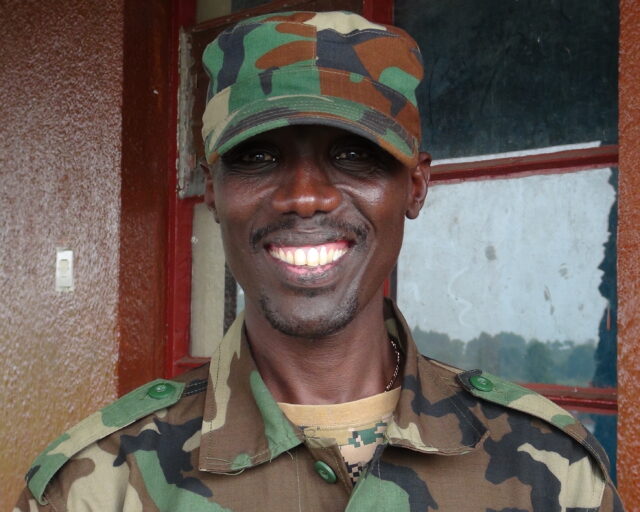
Sultani Makenga: The M23 Movement’s Mysterious Leader in the DRC
Publication: Militant Leadership Monitor Volume: 15 Issue: 12
By:

Executive Summary:
- General Sultani Makenga has led the Rwanda-backed March 23 Movement against the Democratic Republic of Congo (DRC) for many years. Makenga currently stands at the height of his power, having seized the eastern DRC’s two main population centers, Goma and Bukavu, in early 2025.
- Makenga tends to be secretive, but has always justified his militancy in propaganda as a means to protect the Tutsi population. His recent successes represent a major turnaround from the group’s nadir in November 2013, when Makenga himself was captured in Uganda.
As Rwanda-backed M23 (March 23 Movement) militants solidify their control over the resource-rich eastern territory of the Democratic Republic of Congo (DRC), General Sultani Makenga stands out for his long-time leadership of the movement. A ceasefire between the M23 Movement and the DRC was negotiated in April with the backing of Qatar. Even so, Makenga has still maintained control over the eastern DRC’s two main population centers, Goma and Bukavu, since they were seized in early 2025 (France24, April 24). This places the 51-year-old Makenga at the height of his power, and makes his moniker “The Warlord of Kivu” (referring to the area of the eastern DRC where he operates) more accurate than ever (Aberfoyle International Security, June 2).
During his career, Makenga has experienced ups and downs. Just over a decade ago, he was labeled a “defeated Congolese rebel leader” when he was captured in Uganda in November 2013. At that time, DRC troops had chased him over the border, where he was captured and disarmed. This offered the region a “glimmer of hope” because he and his 1,700 fighters were infamous for forcible recruitment of the local population, sexual violence, and the massacre of civilians (The Guardian, November 7, 2013; Human Rights Watch, September 11, 2012).
Makenga has always justified his militancy as a means to protect the Tutsi population, which he alleges the DRC and mercenaries it employed were mistreating. He claimed, for example, that government-affiliated mercenaries had burned down a village “only because they were populated mainly by Tutsi.” Makenga condemned the government and responded that, “We must overcome this ethnic ideology of hatred and promote reconciliation” (The New Times [Rwanda], March 13). This is consistent with the ideology of his backers in the Paul Kagame-led government of Rwanda, which has prohibited open ethnic identification since the end of the genocide in 1994.
Makenga first became engaged in militancy during the Rwandan civil war in the 1990s. At the time, he fought for the Kagame-led Rwandan Patriotic Front and witnessed the genocide against his fellow Tutsis. However, unlike Kagame, Makenga was born in North Kivu in the DRC, making him uniquely situated to lead the M23 Movement. Makenga was notably not handed back to the DRC by Ugandan forces after his capture in 2013. Instead, when a peace agreement was reached in 2016, he was placed in a demobilization camp; by 2017, he was again leading the M23 Movement, allegedly with both Ugandan and Rwandan backing. In return, M23 was expected to provide the government with minerals extracted in the DRC (Foreign Affairs Forum, January 30). With little concern for international law, Makenga was able to build up M23’s forces rapidly by recruiting numerous child soldiers.
Nowadays, Makenga only makes rare appearances in public, where he is almost always seen wearing his signature khaki cap that hangs low to conceal his face (Le Monde, February 2). Makenga is so secretive that he has never publicly addressed the local population in the eastern DRC, but rather communicates with the people through intermediaries or spokesmen. Notwithstanding his clandestine tendencies, the past three years have been perhaps the most militarily successful of his career and have enshrined M23’s militants as a force to be reckoned with in the eastern DRC and across its borders.



